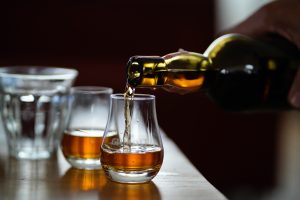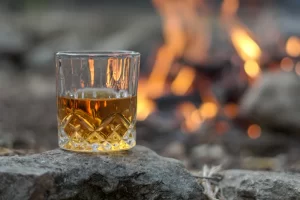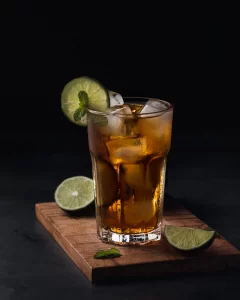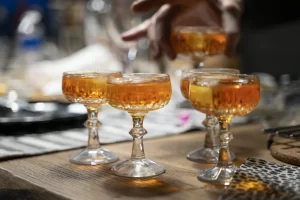Utah Liquor Laws And Regulations
Utah has some of the strictest laws in the United States when it comes to alcohol production and sales of alcoholic beverages. In fact, Utah is one of the few US states that still has fully government-controlled liquor operations. While most US states have relinquished their retail control of beer, Utah state still controls sales of beer higher than 5% ABV. In this article, we find out more about Utah’s liquor laws and regulations for distilleries, breweries and other manufacturers of alcoholic beverages.
Alcohol Laws In Utah
Since 1935, the sale of alcoholic beverages is controlled by the Utah Department of Alcoholic Beverage Services.
This gives the state of Utah a full monopoly over retailing and wholesaling of a wide variety of different types of alcohol, including beer, wine and spirits.
With a beer-only license, grocery stores in Utah can sell beer that has a maximum of 5% ABV.
Beer that is higher than 5% can only be sold at Package Agencies or state-licensed liquor stores with a liquor license.
Clubs, taverns, bars and other establishments can sell and serve alcoholic beverages from only 10 am to 1 am. Restaurants are excluded from this time limit.
These establishments must also serve food and their alcohol sales cannot exceed 30% of their overall sales.
Licenses For Utah Distilleries

The state of Utah provides different licenses and permits to establishments and producers of alcoholic beverages.
Businesses should direct their license application to the Licensing & Compliance Division of the Alcoholic Beverage Services Commission.
This board meets only once a month, so businesses need to submit their application by latest the 10th of the month to provide enough processing time for the application.
After your application and all necessary documents have been received, you will be notified of the date when the Commission considers your application.
Here are some of the main liquor licenses and permits you can apply for as a business in Utah.
On-Premises Retail License
You can apply for an on-premise retail license if you have a retail establishment where alcoholic beverages are consumed on your premises.
This includes bars, airport lounges, resorts, bowling centers, golf courses, banquet facilities and all types of restaurants.
The state of Utah requires these premises to meet strict proximity requirements to ensure that they are not too close to libraries, playgrounds, parks, churches or schools.
Off-Premises Retail Licenses
In addition to their local licensing, retailers, convenience stores and grocery stores need to obtain an off-premise license if they sell alcohol of any type.
All off-premises retail licenses are renewed every year. Beer-only licenses run until the last day in February which means they need to be renewed by latest end of January.
Bar licenses run until June 30th and they need to be renewed by the end of May.
Licenses for restaurants, hotels, resorts, banquets, reception centers and other hospitality facilities run out end of October and need to be renewed by end of September.
Retail Seasonal Licenses
Retailers can also purchase individual licenses for the summer or winter season that allow them to sell alcohol for a short period.
Summer seasonal licenses run from the beginning of April to the end of October. Winter licenses are valid from the beginning of November to the end of March.
Both a summer seasonal license and a winter seasonal license are the same fee as a full-year license.
Manufacturing and Distribution License
Utah also issues manufacturing licenses to producers such as a brewery, distillery and winery.
This license type also includes businesses that distribute alcohol, such as liquor transport, beer wholesalers and liquor warehouses.
Out-of-state manufacturers, suppliers of heavy beer and importers require an approval form to import their products into Ohio state.
Temporary Event Permits
Utah also provides permits for temporary beer events and one-off events. They are issued by the DABS Director but reviewed by the ABSC board.
Event organizers should submit their application at least 30 days before the event to ensure that it is processed in time.
The board won’t consider applications that are submitted 7 days before the event.
License Fees For Utah Distilleries
License fees vary depending on your specific type of business. You can view individual license fees on the state website.
While Utah provides specific distillery licenses, they come with strict requirements and limits. Plus, the fees are also often higher than in many other states.
New businesses should carefully consider the application times for their required license. Utah doesn’t offer pro-rating business license fees.
This means that if you open a restaurant in September and apply for a restaurant license fee in the same month as restaurant licenses renew across the entire state, then you still need to pay the full fee.
Distillery Requirements In Utah
Distilleries, breweries and other alcohol manufacturers require a variety of licenses that stipulate specific requirements for the business.
Here are some of the key factors that the ABSC board considers when it reviews an application for a liquor license.
Location
Your business should not be too close to parks, public playgrounds, public libraries, churches or schools.
The board also considers the overall density of alcohol outlets in your specific area. It also looks at tourist traffic, other licensees in the area and the demographics of the region.
Physical Aspects
The ABSC board takes a close look at your business premises, such as the site of the premise and the physical condition of the building and anything in it.
Parking, opening dates and facilities are also essential to a successful application.
Operations And Management

The Alcoholic Beverage Services Commission board reviews your management experience, other alcohol licenses you may hold and your type of management scheme.
The board also keeps a close eye on any pending violation or violation history.
Type Of Operation
As part of your liquor license application, the Alcoholic Beverage Services Commission reviews the type of menu items you offer and your specific clientele (adults or minors).
They also check your operation hours as well as estimated sales of food and alcohol.
Training
Utah liquor laws require everyone who is selling alcoholic beverages as well as overlooking the sales of alcohol to pass an approved alcohol server training.
This training should be done within the first month of employment and it applies to all employees and managers.
In addition, managers who run a DABS-approved business with a retail license also need to attend a manager training program.
Final Thoughts
While Utah has some of the strictest liquor laws and regulations relating to alcohol sales, the state also provides a lot of guidelines for alcohol manufacturers.









